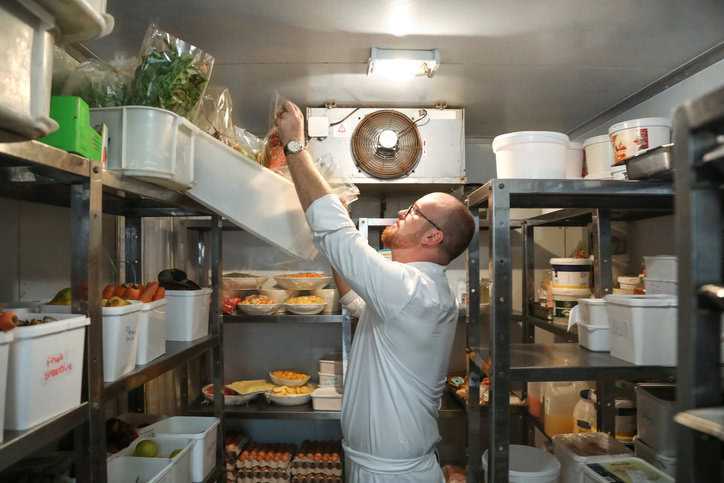How Refrigeration Standards Impact Restaurant Efficiency And Sustainability

Refrigeration is a cornerstone of the restaurant industry. It keeps food safe, maintains high-quality products and ultimately helps operations run smoothly. Of course, following strict refrigeration standards is necessary for maintaining restaurant efficiency and meeting regulations. As technology advances and environmental awareness grows, these standards are becoming even more important in shaping how restaurants operate.
Efficiency Through Compliance
Refrigeration standards set by federal agencies like the Environmental Protection Agency (EPA) and the Department of Energy (DOE) specify requirements for energy consumption, temperature control, and refrigerant management. Meeting these standards can significantly boost a restaurant’s operational efficiency.
Energy efficiency
Nowadays, there is a strong focus on energy efficiency. Regulations such as the DOE’s Energy Conservation Standards for Commercial Refrigeration Equipment require that refrigeration units meet specific energy consumption thresholds. Using energy-efficient units can also substantially reduce energy bills. This allows resources to be redirected to other business areas such as kitchen equipment improvements or enhanced customer service.
Advanced technologies
Meeting refrigeration standards often involves adopting advanced technologies that enhance efficiency. Variable speed compressors and electronically commutated motors (ECMs) are becoming common in commercial units. These technologies adjust cooling output based on actual need, reducing energy consumption during low-demand periods. Investing in such technologies can lead to noticeable reductions in operational costs while maintaining optimal cooling performance.
Operational Costs and Refrigeration Standards
Adhering to refrigeration standards can also help manage and reduce operational costs in several ways.
Maintenance and longevity
Refrigeration units that comply with industry standards are generally more durable and require less maintenance. High-quality components and advanced engineering reduce the likelihood of breakdowns, which can be costly in terms of repairs and food spoilage. Performing checks and following mandated maintenance schedules helps units operate efficiently, further lowering long-term costs.
Refrigerant management
The type of refrigerant used in cooling systems is another critical factor. Refrigeration standards often require low-global-warming-potential (GWP) refrigerants. These environmentally friendly refrigerants comply with regulations and often result in better cooling performance and lower energy consumption. Although switching to low-GWP refrigerants can be costly initially, the long-term savings and operational benefits make it a worthwhile investment.
Environmental Sustainability
The restaurant industry—which is known for its significant environmental footprint—can greatly benefit from refrigeration standards that promote sustainability.
Reducing carbon footprint
Refrigeration units contribute significantly to a restaurant’s carbon footprint due to continuous energy consumption and the potential release of harmful refrigerants. Standards for energy efficiency and the use of environmentally friendly refrigerants help restaurants lower their carbon emissions. This is important for businesses aiming to adopt more sustainable practices and appeal to environmentally conscious consumers.
Waste reduction
Efficient refrigeration systems help reduce waste by maintaining the quality and safety of perishable food items. For example, a walk-in cooler provides ample space to store large quantities of food under optimal conditions, minimizing spoilage. This not only reduces food waste but also enhances the overall sustainability of restaurant operations.
The Future of Refrigeration Standards
As the restaurant industry evolves, so will refrigeration standards. Future regulations are likely to focus even more on sustainability, with stricter guidelines on energy consumption and refrigerant management.
Integration with smart technologies
The integration of smart technologies with refrigeration systems is an emerging trend that could become a standard requirement. Smart refrigeration units can monitor performance in real-time, predict maintenance needs and optimize energy usage based on current conditions. This technology enhances efficiency and provides valuable data for restaurant managers to make informed decisions about their operations.
Industry collaboration
Collaboration within the industry is essential to advancing refrigeration standards. Manufacturers, regulators, and restaurant owners must work together to develop and implement standards that are practical and beneficial. This collaborative approach supports industry growth while promoting environmental sustainability.
The Path Forward
Refrigeration standards are key to enhancing efficiency, reducing costs, and promoting sustainability in the restaurant industry. Meeting these standards helps maintain food safety, lower carbon footprints and save on operational expenses. As the industry evolves, adopting advanced technologies and sustainable practices will be crucial for staying competitive.
For restaurant owners and managers, this means keeping up with the latest refrigeration standards and technologies is vital. By investing in an energy-efficient equipment and low-GWP refrigerants—along with other reforms—restaurants can optimize operations, improve customer satisfaction, and contribute to a greener future.
Contributing Author: Trevor Crivello, President, Iron Mountain Refrigeration
Trevor Crivello is the founder and President of Iron Mountain Refrigeration and has a decade of experience in commercial refrigeration. Iron Mountain Refrigeration supplies commercial refrigeration equipment to fast-casual restaurants ranging from small operations to large national chains. Crivello leads Iron Mountain Refrigeration with a passion for quality and a devotion to providing the highest level of customer service.







Businesses often underestimate how crucial a proper commercial refrigeration system installation installation is. Whether it’s for a restaurant or grocery setup, having it done right from the beginning makes a huge difference in efficiency and product safety